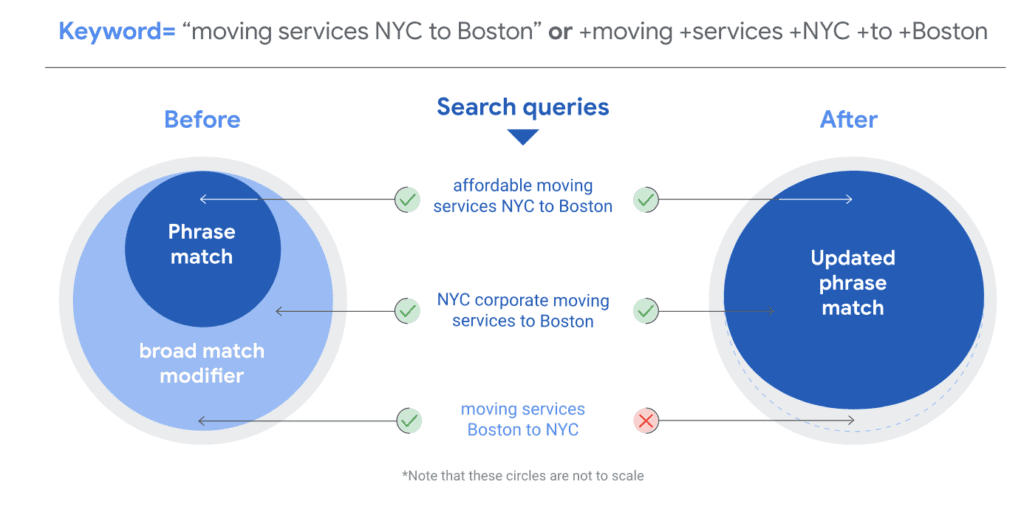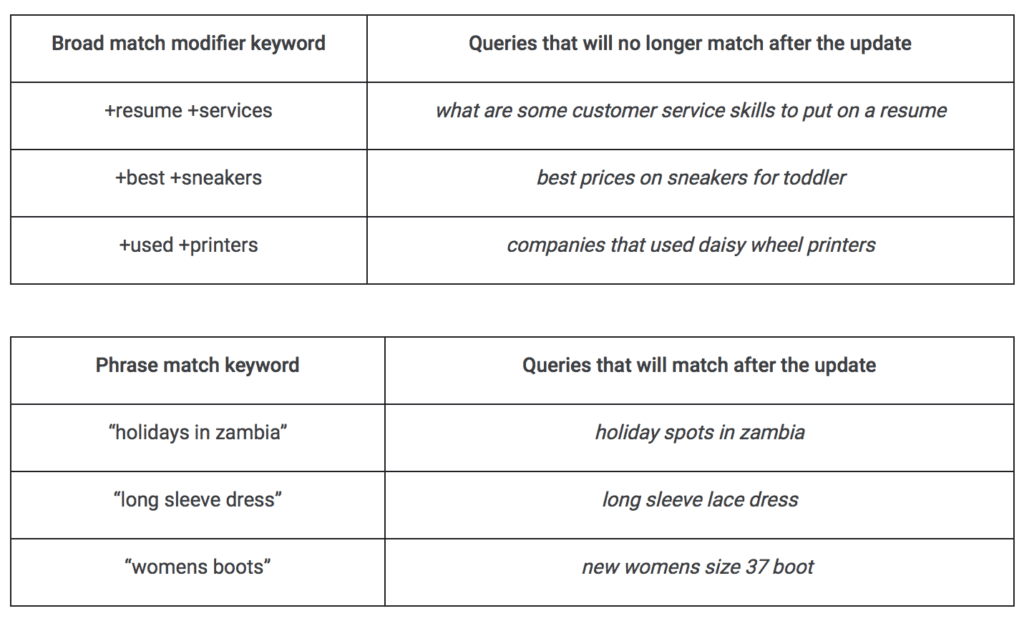On February 4, Google announced changes intended to help advertisers reach searchers more efficiently and precisely in context of search intent. Within the next few weeks. Google will expand phrase match to include additional broad match modifier traffic. In addition, Google will end support for broad match modifier. As a result, Google says that advertising on Google will become more relevant to search behavior.
In a blog post, Google explained how the expansion of phrase match will work. Google cited the example of a moving service wanting to have its ads appear alongside someone searching for “moving services NYC to Boston.” The way phrase match works now, that ad might appear alongside a “moving services NYC to Boston” search – but it also might appear alongside “moving services Boston to NYC” searches, which is obviously an irrelevant ad placement. But this problem will go away over the next few weeks with the expansion of phrase match, as Google depicted on its blog:
Google also shared more examples to illustrate how matching behavior will change after this update:
Meanwhile, Google is phasing out support for broad match modifier. Google intended for broad match modifier to trigger a business’s ads if keywords were present in the search query in the exact or close variant form.
To minimize disruption, Google will roll out the change over several months. According to Google:
- Starting mid-February, both phrase match and broad match modifier keywords will begin to transition to the new matching behavior. Advertisers will keep their performance data and will not need to migrate their keywords.
- In July, once the new behavior has been rolled out globally, advertisers will no longer be able to create new broad match modifier keywords. But, existing broad match modifier keywords will continue to serve under the new behavior – so Google suggests that advertisers start now by create new keywords in phrase match going forward.
What Advertisers Should Do
Google suggests that advertisers:
- Monitor performance and shift budgets where necessary. Traffic may fluctuate due to these changes; so make adjustments as needed.
- Regularly check Recommendations page: “Add new keywords” helps an advertiser maintain keyword coverage, and “Remove redundant keywords” helps an advertiser consolidate duplicate keywords.
- Consider using broad match with Smart Bidding. If an advertiser is concerned about losing coverage, broad match with Smart Bidding helps reach more relevant searches that meet an advertiser’s performance objectives. Google cited the example of online food delivery service Just Eat Takeaway.com, which just tested the combination of broad match with Smart Bidding. The business said, “[W]e’ve been surprised by the results of using broad match with Smart Bidding. We saw a 127% increase in conversions while hitting our goals.”
- Continue to use negative keywords: Exclude matches an advertiser doesn’t want with negative keywords.
In the near term, advertisers will find themselves busy adapting their campaigns, and they may experience some traffic fluctuations – so it’s best to watch performance metrics closely during the transition.
Of course, if you are a True Interactive client, we’ll do all the heavy lifting for you. We’ve got you covered!
Contact True Interactive
To succeed with online advertising, contact True Interactive. Read about some of our client work here.
Photo by Solen Feyissa on Unsplash


